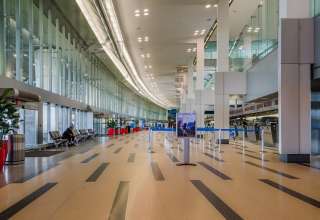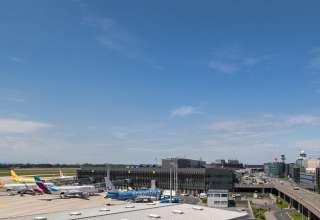Adveez announced completion of its third airport Ground Support Equipment (GSE) Speed Control System (SCS) installation at Lyon Airport (LYS) in France, following the celebrated success of similar systems currently adopted by Nice (NCE) and Marseille (MRS) airports.
The Adveez GSE SCS solves the wide-spread issue airports face of reducing speed in baggage drop-off galleries, tunnels and other areas within airports with low speed requirements. Adveez has developed a cost-effective speed control system for electric GSEs that immediately reduces the speed of a GSE via radio frequency (RF) detection. The system consists of a simple receiver installed on individual GSEs and RF beacons that are strategically located before speed-restricted areas like the entrance of baggage drop-off galleries; when the GSE is detected, its speed is automatically switched to slow or “turtle” mode. A second beacon is placed at the exit of the speed-restricted area to automatically switch the speed of the GSE back to “normal” mode.
Airport managers and GSE operators (airlines and GSE handlers) are realizing immediate benefits with a significant reduction in accidents and reduced cost for repairs and fines. In some cases, invasive speed-reduction methods like speed bumps have been removed entirely; these not only caused excessive wear on vehicles and trailers, but luggage would be knocked off carts causing additional delays in delivery. “We are getting glowing reviews from airport managers and GSE handlers,” said Adveez CEO Karim Ben Dhia. “Our system directly addresses long-seated contention between airports and operators about how best to reduce speed. The Adveez system is fully automatic, cost-effective and easy to install. Now both parties are happy.”
The Adveez SCS, sold as a stand-alone system, is part of a larger IoT offering of purpose-built electronic control and data capture hardware and software for airport GSEs to provide safety, security, tracking and information about equipment usage. This data provides real-time information for dynamic maintenance scheduling, accident reduction and fleet-sizing based on usage, and data to improve plane turn operations.
“We are currently pursuing other markets where electric vehicle assets need speed control, including logistics operations where use of electric forklifts is prevalent,” Ben Dhia said.











